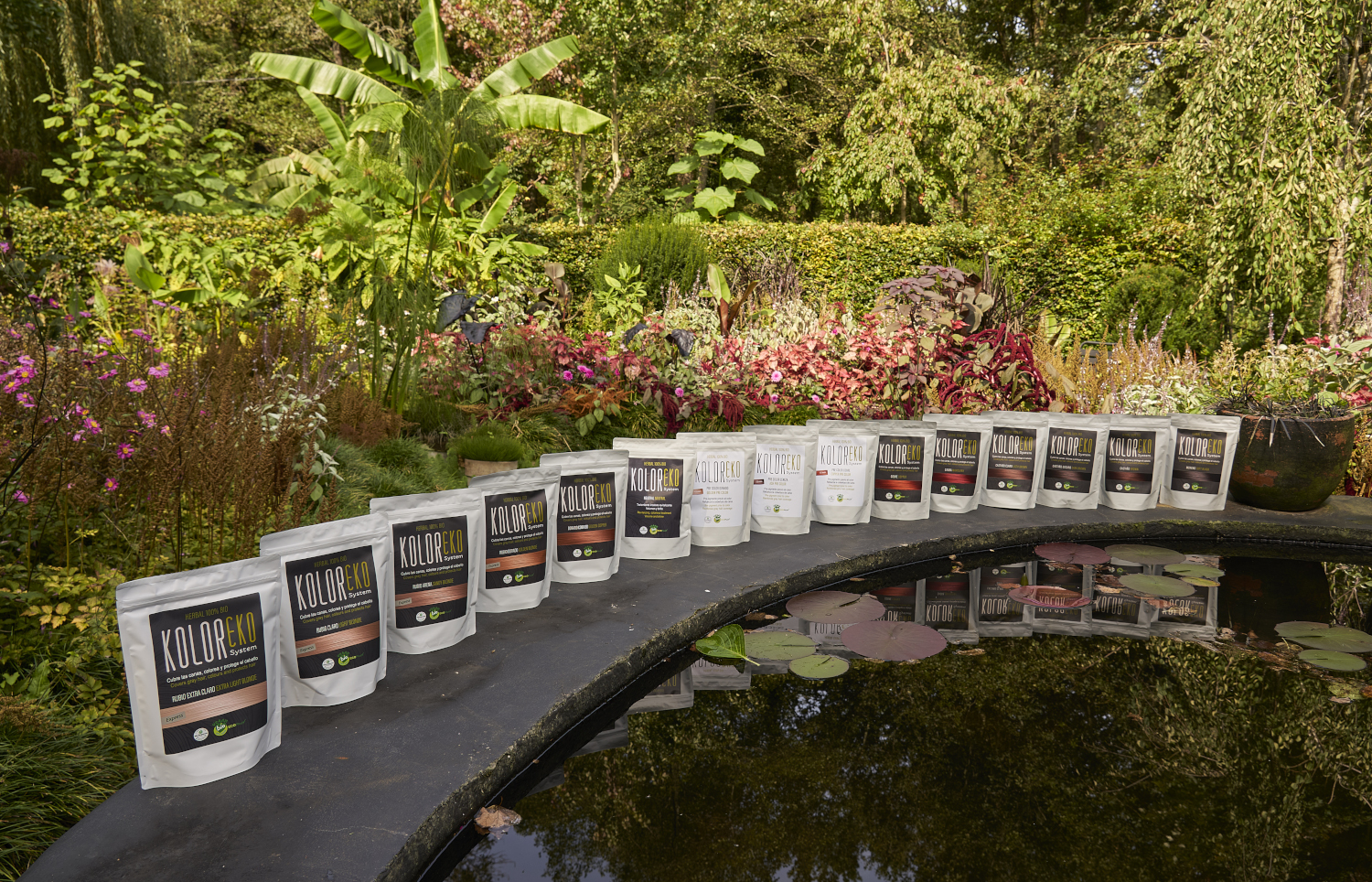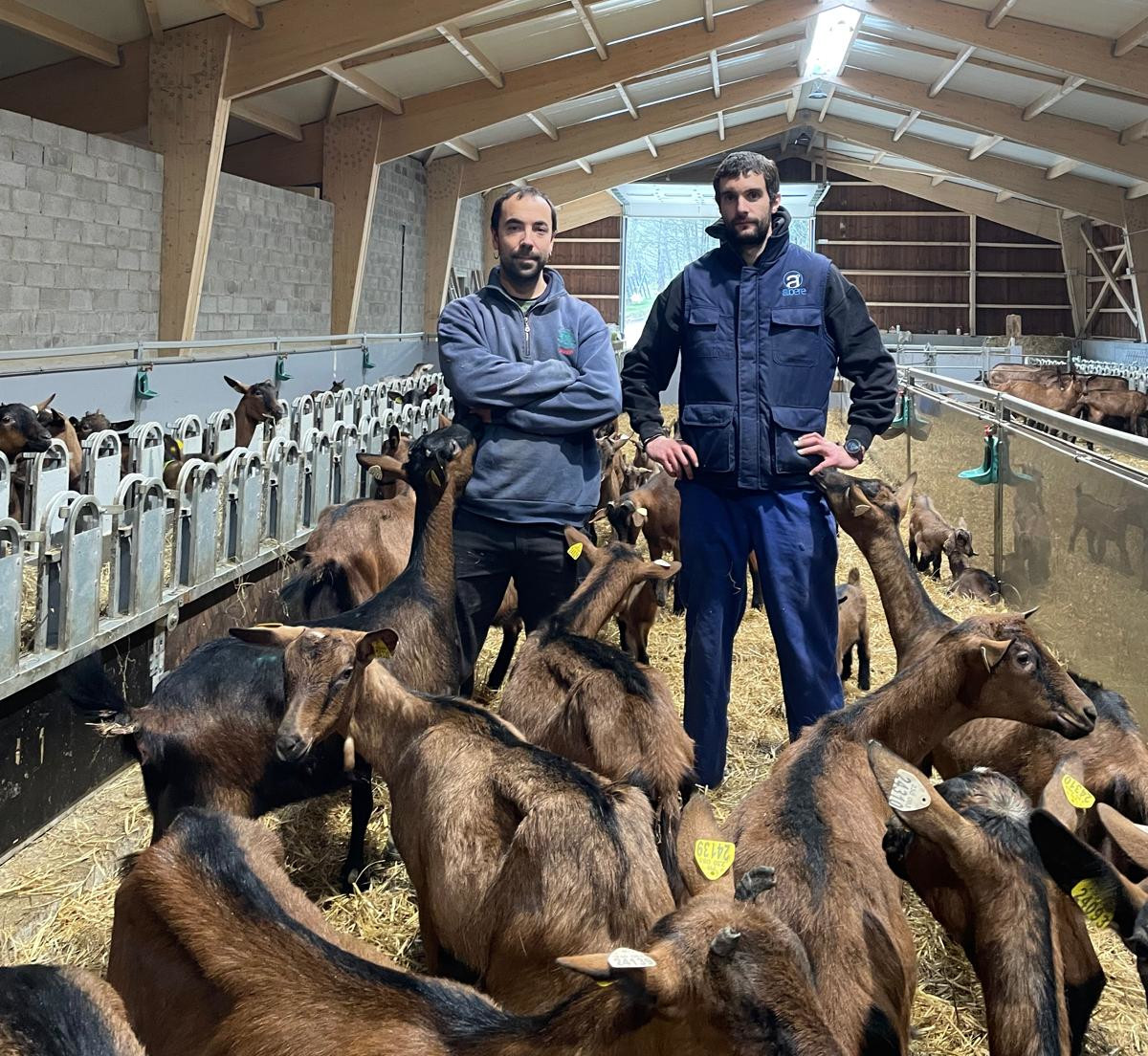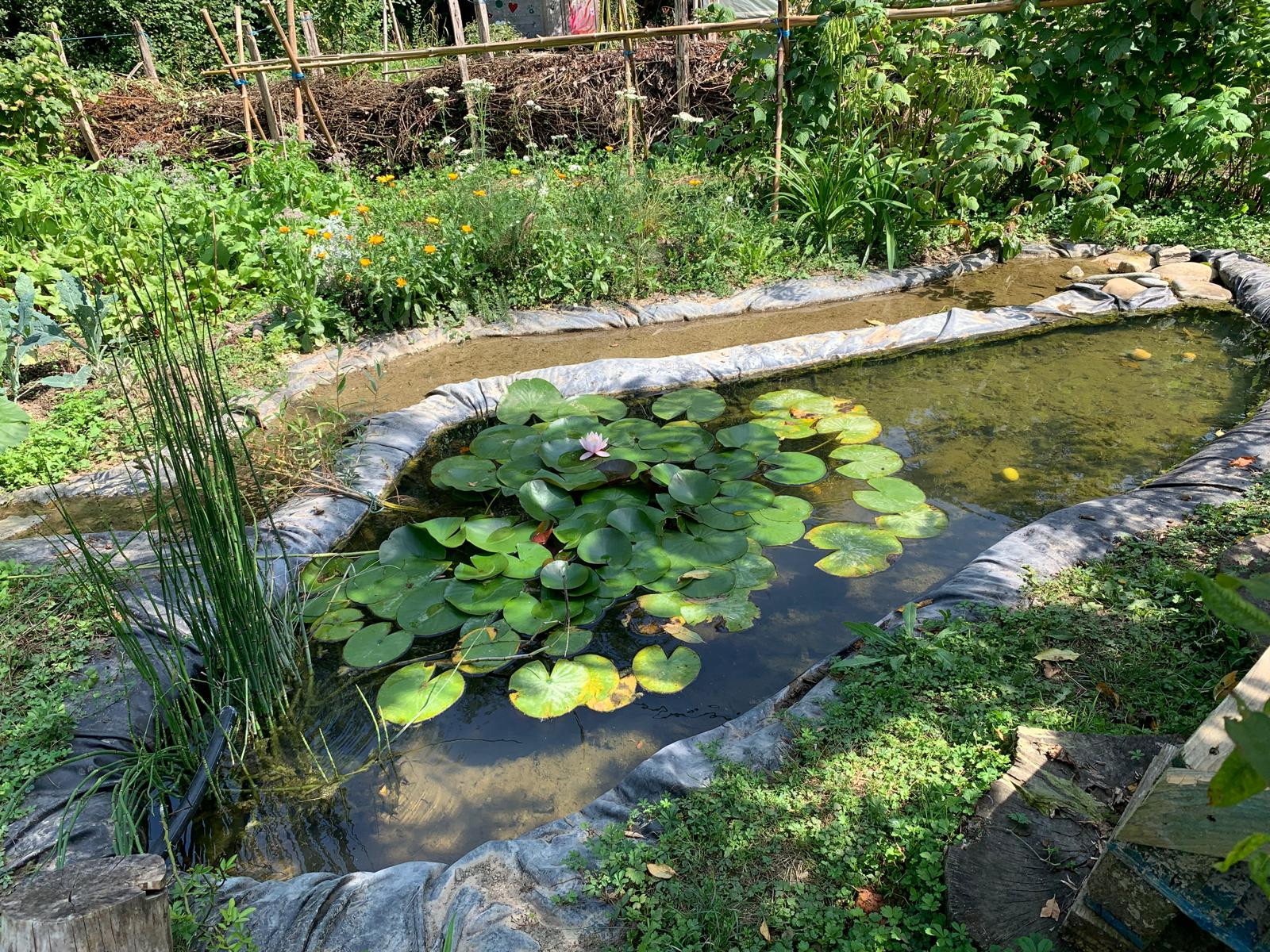“Sasi ardi is an endangered breed, it’s not easy to get it.”
- Pastor Ismael Zubia Arrieta belongs to the Alavese people of Hermua. Born in the farmhouse, from a young age he has maintained a close relationship with the primary sector: “From his young father worked as a pastor in America and from there he bought the farmhouse and the lands”. When the bridge was small, the father first brought the flock matorrals home through the Goizueta area. As a young man he studied electromechanics and for many years he worked in the maintenance of the wind farms, but he always kept the sheep with his sister. However, six years ago, due to difficulties in reconciling foreign work with domestic work and personal life, he decided to abandon work until then and dedicate himself to grazing.

The young Alavese received several courses on holistic use, and the number of heads gradually increased. “It’s true that getting sheep from the Sasi race isn’t easy, because there isn’t much,” he says. The pseudo-sheep is a mountain race that moves a lot between brawls, hence its name, and moves more alone or in small groups than in large herds. Morphologically, it is relatively small in size, reddish in color and less wool than latxa. “This is not a good dairy breed, it is used for axuri,” explains Zubia.
From May to January he has loose sheep on the mountain. When it goes down to the lowlands during the spring, it rotates grazing, dividing grassland into small portions with electric wire and changing them every day or every two days. “In this way they don’t choose the grass, good and bad, they eat everything leaving the part clean. It’s also better for land: you improve plant diversity, you fertilize soils and you give them carbon.” It is also beneficial for sheep, who in their continuous movement do not stay long in the defecation zone, limiting the possibility of parasitization. “In the end it’s a way to mimic nature, the groups that were previously moved by predators,” says Zubiea.
Racial survival
Sasi Ardi is an endangered breed that participates in a conservation program. To do so, sheep are collected in a family book. “They have blood tests and a qualifier comes once a year to check if their parents are of that race.” If they meet the requirements, this book includes sheep, some of which are kept by the pastor to sell to those they want. “For example, a young Navarro is now starting a project similar to my own, which has brought me many sheep,” he adds.
As for the sale of axuris, the Puente uses only the direct route, and it works on demand, as clients from nearby areas and Vitoria-Gasteiz ask for ecological axuri in advance and the pastor takes them to the slaughterhouse of Oñati for several shifts. It also has its distribution: “Use, reservations, take them to the slaughterhouse, distribution… I do everything”.
Donostiako Amara auzoko Izko ileapaindegi ekologikoak 40 urte bete berri ditu. Familia-enpresa txikia da, eta hasieratik izan zuten sortzaileek ile-apainketan erabiltzen ziren produktuekiko kezka. “Erabiltzaileen azalarentzat oso bortzitzak dira produktu gehienak, baina... [+]
Ubidekoak (Bizkaia) dira Imanol Iturriotz eta Aritz Bengoa gazteak. “Lagunak gara txikitatik, eta beti izan dugu buruan abeltzaintza proiektu bat martxan jartzeko ideia”, azaldu du Iturriotzek. Nekazaritzari lotutako ikasketak izan ez arren, baserri munduarekin eta... [+]
Iruñean bizi ziren Iñaki Zoko Lamarka eta Andoni Arizkuren Eseberri gazteak, baina familiaren herriarekin, Otsagabiarekin, lotura estua zuten biek betidanik. “Lehen, asteburuetan eta udan etortzen ginen eta duela urte batzuk bizitzera etorri ginen”, dio... [+]
Gipuzkoako hamaika txokotatik gerturatutako hamarka lagun elkartu ziren otsailaren 23an Amillubiko lehen auzo(p)lanera. Biolur elkarteak bultzatutako proiektu kolektiboa da Amillubi, agroekologian sakontzeko eta Gipuzkoako etorkizuneko elikadura erronkei heltzeko asmoz Zestoako... [+]
Emakume bakoitzaren errelatotik abiatuta, lurrari eta elikadurari buruzko jakituria kolektibizatu eta sukaldeko iruditegia irauli nahi ditu Ziminttere proiektuak, mahai baten bueltan, sukaldean bertan eta elikagaiak eskutan darabiltzaten bitartean.





















